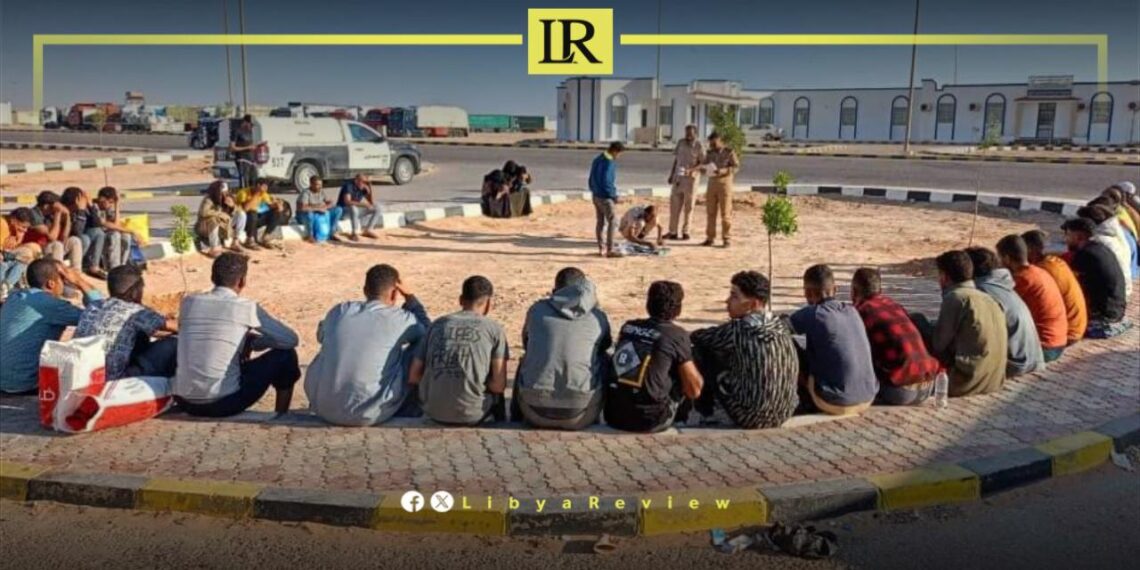The Anti-Illegal Immigration Authority’s Green Mountain branch announced on Wednesday the deportation of 49 irregular Egyptian migrants. This group included two women and three children. The migrants were deported through the Emsaad border crossing, as per the authority’s statement.
This action is part of ongoing efforts by Libyan authorities to manage and control illegal immigration within the country. The Green Mountain branch’s recent operations follow a broader trend of increased deportations and repatriations in recent months.
In a related context, the Greater Benghazi branch of the Anti-Illegal Immigration Authority detained 2,017 illegal migrants between 23 June 2024 and 23 July 2024. Among those detained, 145 were found to be infected with Hepatitis C and B, and five others were diagnosed with HIV/AIDS, according to a statement from the authority’s media office on Facebook.
The statement also indicated that measures are being taken to repatriate the detained migrants to their home countries. For those whose status can be regularized, the authority is following the legal procedures in place within Libya.
Earlier this week, Libya repatriated 369 irregular migrants to Nigeria and Mali. This included over one hundred women and children. The repatriation process was confirmed by Mohammed Baredaa, head of the Libyan Interior Ministry’s organization tasked with halting irregular migration. According to Baredaa, two repatriation flights transported 204 Nigerians and 165 Malians. Among the Nigerian migrants were nine babies, 18 minors, and 108 women.
These flights were conducted in coordination with the International Organization for Migration (IOM), which provides free return flights to migrants and assists in their reintegration through its voluntary humanitarian return programme.
However, some migrants have alleged that they were forcibly deported. Hakim, a 59-year-old Nigerian who had lived in Libya for 25 years, recounted how authorities “came at night and broke down the door.” He claimed that they confiscated his passport before detaining him and other migrants.
The deportations highlight the complex and often contentious nature of managing irregular migration in Libya. The cooperation between Libyan authorities and international organizations like the IOM is crucial in ensuring that repatriation processes are conducted humanely and in accordance with international standards.
Libya’s ongoing efforts to control illegal immigration are a part of its broader strategy to stabilize the region and address the humanitarian concerns associated with irregular migration. The country continues to face significant challenges in managing these migration flows, particularly given its strategic location as a transit point for migrants aiming to reach Europe.


